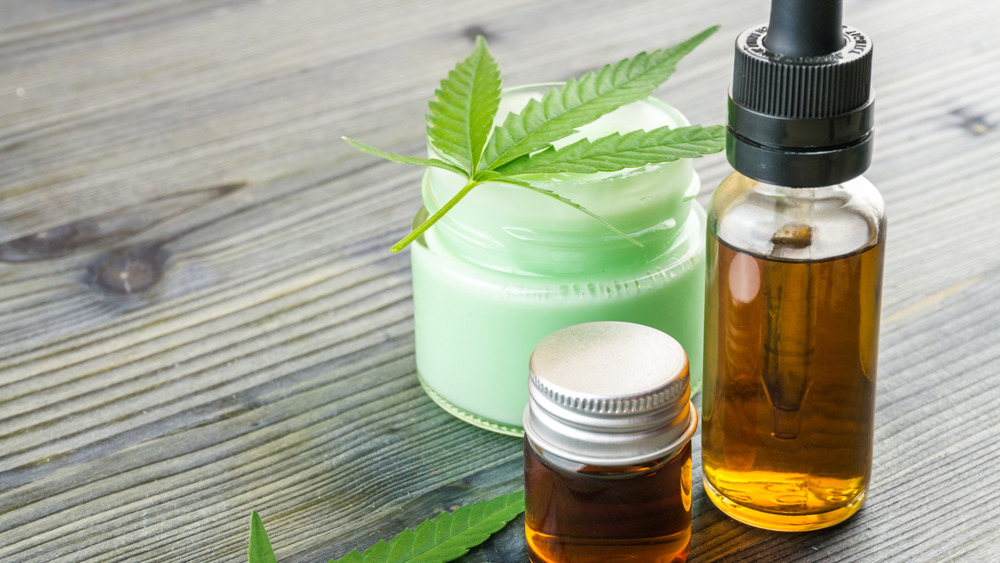The One Health Trend Nearly 20% Of People Wish Would Disappear
Is the cool-factor of CBD starting to fade? A new survey suggests that cannabidiol, popularly CBD, has gone from the superstar of the wellness world to the annoying health trend that almost 20 percent of people wish would simply go away. If you're tired of hearing about CBD gummies, teas, oils, tinctures, puppy treats, cat toys, and massage lotions, you're not alone.
Health Digest recently conducted a survey of 527 Americans about their exercise and dieting habits and while some results were expected — respondents really don't enjoy running after all, though many of them still do it regularly — others, like this one, had results that were nearly tied. While 19.17 percent of people were sick of hearing about the benefits of CBD, 18 percent found electric stimulation exercise irritating, followed closely by the 17.65 percent of people who can't stand weight loss teas. The 1200-calorie diet and the carnivore diet were right behind, with roughly 14 percent of the vote each.
But what makes CBD — cannabidiol — products so popular, and so irritating? Marketing may have a lot to do with it.
Why is CBD so popular anyway?
CBD — the hemp-derived cousin of marijuana — won't get you high, but has been touted as a treatment for anxiety as well as chronic pain and soreness (via Harvard Health Publishing). But CBD may be the most irritating recent health trend simply because it's snuck into every element of our lives, from our coffees to our sleep masks to our pet food.
And it is a popular trend: the most popular wellness trend on Google, in fact. In 2019, there were 6.4 million Google searches for CBD, which is three times the amount of searches for meditation, a more proven anti-anxiety tool (via VendHQ).
There are a lot of false claims about what CBD can do, including the idea that it can cure cancer, but more research is needed before its benefits can be proven (via the FDA). As Harvard Health Publishing points out, when shopping for CBD, be sure to do your research carefully. As an unregulated supplement, it isn't subject to inspection, so many options on the market may contain other ingredients, or not contain the ingredients that are listed. There also isn't much research into what constitutes an effective dose. It's impossible to know exactly how much of any supplement to take, so proceed with caution.


